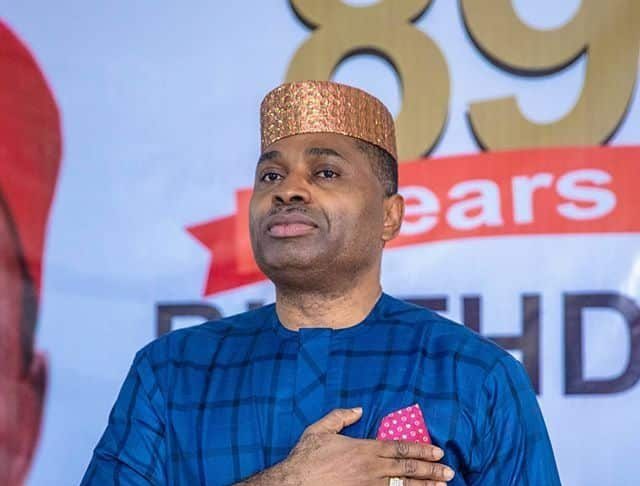The recent resignation of Kenneth Okonkwo, a former spokesperson for the Labour Party Presidential Campaign Council, has ignited discussions about his political future and the ongoing internal struggles within the Labour Party. Okonkwo’s departure, attributed to the party’s perceived prioritization of personal interests over the welfare of Nigerians, underscores the deeper issues plaguing the party’s leadership and its potential impact on the Nigerian political landscape. Okonkwo has stated that he is currently evaluating his options and searching for a political platform that genuinely champions the well-being of the Nigerian people, emphasizing that he will not align himself with any party that does not align with his values and vision for the country.
Okonkwo’s resignation followed his public criticism of Labour Party National Chairman, Julius Abure, whom he accused of prioritizing personal gain over the party’s stability and future. This accusation highlights a growing concern within the party about the direction of its leadership and the potential consequences of internal divisions. Okonkwo argued that the prevailing crisis within the Labour Party is a collective failure, a sentiment reflecting a broader frustration among party members who feel that their voices and concerns are not being adequately addressed. He asserted that the current state of “anarchy” could have been averted if members had proactively addressed the fundamental issues driving the internal conflict.
Okonkwo’s observations shed light on the complex power dynamics within the Labour Party. His reference to a “caretaker committee” chosen by stakeholders, juxtaposed with another group claiming leadership, illustrates the fragmentation and lack of clear authority within the party. This struggle for control, he suggests, is motivated by self-interest rather than a genuine commitment to the party’s ideals and the welfare of the Nigerian people. His critique highlights the potential for internal power struggles to undermine the party’s credibility and effectiveness in advocating for the interests of its constituents.
Okonkwo’s departure and his subsequent pronouncements represent a significant moment for the Labour Party. His decision to leave, coupled with his public criticism of the party’s leadership, raises questions about the party’s ability to unite its members and present a cohesive front in the Nigerian political arena. His call for a focus on the welfare of the Nigerian people underscores the importance of aligning political action with the needs and aspirations of the citizenry. His search for a political platform that embodies these values reflects a broader sentiment among Nigerian voters who are increasingly seeking leaders and parties that prioritize their well-being.
The situation within the Labour Party serves as a microcosm of the broader challenges facing Nigerian politics. Issues of internal democracy, accountability, and the prioritization of personal gain over public service are recurring themes in the Nigerian political landscape. The struggle for control within the Labour Party mirrors similar power struggles within other political parties, highlighting the systemic nature of these challenges. Okonkwo’s experience underscores the difficulty of navigating these complex political realities and the importance of upholding principles of integrity and service to the people.
The unfolding events within the Labour Party and Okonkwo’s subsequent actions will undoubtedly have implications for the party’s future and its role in Nigerian politics. His departure represents a loss of a prominent voice within the party and raises questions about its ability to retain and attract talented individuals committed to its ideals. His critique of the party’s leadership serves as a call for greater transparency and accountability within the party. The Labour Party’s response to this internal crisis and its ability to address the concerns raised by Okonkwo will be crucial in determining its future trajectory and its ability to effectively represent the interests of the Nigerian people. His emphasis on the welfare of the Nigerian people serves as a reminder of the fundamental purpose of political engagement and the need for leaders to prioritize the needs of their constituents.














